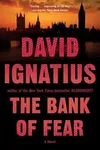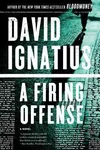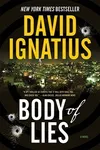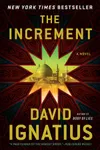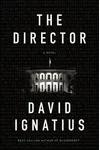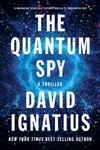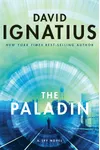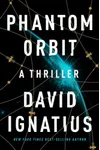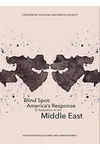Picture an American journalist who spins real-world intrigue into page-turning spy thrillers—meet David Ignatius! Born in 1950, Ignatius has captivated readers with his sharp insights into global politics and his knack for crafting novels like Body of Lies that feel ripped from the headlines. As a Harvard-educated columnist for The Washington Post, he’s a master at blending fact and fiction.
With a career spanning decades, Ignatius has become a leading voice in political literature, offering thrillers that pulse with authenticity. Ready to dive into his world of espionage and international drama? Let’s explore the life and works of this storytelling powerhouse.
The Making of David Ignatius
David Ignatius was born on May 26, 1950, in Cambridge, Massachusetts, into a family that valued intellect and public service. His father, Paul Ignatius, served as Secretary of the Navy, sparking young David’s fascination with power and politics. After graduating from Harvard University in 1973, Ignatius began his journalism career, cutting his teeth at The Wall Street Journal before joining The Washington Post. His early assignments covering the Middle East and intelligence agencies shaped his worldview and fueled his narrative style.
Influenced by literary giants like Graham Greene and John le Carré, Ignatius honed a knack for storytelling that married journalistic precision with novelistic flair. His global experiences—interviewing diplomats, spies, and rebels—became the bedrock of his fiction, launching a dual career as a novelist and columnist.
David Ignatius’s Unforgettable Stories
Ignatius’s novels are a masterclass in political espionage, blending meticulous research with pulse-pounding plots. His breakout, Body of Lies (2007), follows a CIA operative navigating deception in the War on Terror. Adapted into a film starring Leonardo DiCaprio, it cemented Ignatius’s reputation for crafting stories that feel eerily prescient.
Other gems include Agents of Innocence (1987), a nuanced tale of a CIA officer in Beirut, praised for its authenticity, and The Director (2014), which dives into cyber-espionage at the CIA’s helm. His 2020 novel, The Paladin, explores the murky world of disinformation, showcasing his ability to tackle contemporary issues. Ignatius’s style—crisp, character-driven, and steeped in real-world detail—makes his thrillers both thrilling and thought-provoking, appealing to fans of intellectual suspense.
His journalism, meanwhile, offers razor-sharp analysis of global affairs, with columns that often read like prequels to his novels. This synergy between his reporting and fiction creates a unique voice, one that’s both authoritative and accessible, inviting readers into the shadowy corridors of power.
Why David Ignatius Matters
David Ignatius’s impact lies in his ability to illuminate the complexities of our world through storytelling. His novels don’t just entertain—they challenge readers to grapple with moral ambiguities in geopolitics and intelligence work. By humanizing spies and diplomats, he bridges the gap between distant headlines and personal struggles, making global issues relatable.
His influence extends beyond bookshelves. As a trusted commentator, Ignatius shapes public discourse on foreign policy, while his novels inspire filmmakers and writers alike. In an era of misinformation, his commitment to truth—whether in columns or fiction—resonates deeply, cementing his legacy as a storyteller who makes us think.
About David Ignatius
- Born: May 26, 1950, Cambridge, Massachusetts
- Key Works: Body of Lies, Agents of Innocence, The Director, The Paladin
- Notable Awards: Finalist for the Los Angeles Times Book Prize, multiple journalism honors
- Fun Fact: Ignatius’s novels are so realistic, they’re often used in intelligence training!
Ready for a thrilling read? Snag Body of Lies or The Paladin and dive into David Ignatius’s world of spies, secrets, and suspense!


